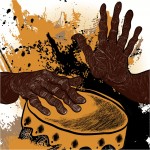
Psychological therapies given to people with depression, anxiety or mixed disorders in primary care are usually delivered over a shorter time period than in secondary care. In the UK, 6 sessions is a common treatment length, which contrasts to the 12-24 sessions that have been the subject of most trials of psychological therapies in secondary care [read the full story…]






